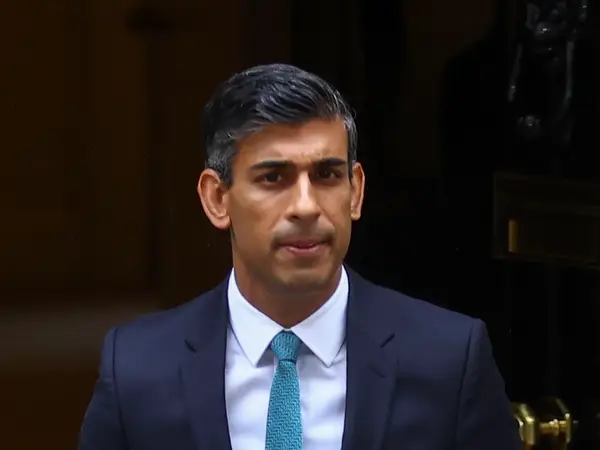While new British prime minister Rishi Sunak is expected to concentrate on pressing domestic issues, he may change emphasis in Middle East policy.
A member of parliament since only 2015, Sunak has suggested the 2015 Iran nuclear agreement – the JCPOA, Joint Comprehensive Plan of Action – should be strengthened, that Britain should consider moving its Israel embassy to Jerusalem, and that it should strengthen links with Arab monarchies in the Persian Gulf.
Reports of Sunak’s views of Iran come partly from close allies. Former defense secretary Liam Fox told the National newspaper in August said that Sunak was “more hawkish” than the foreign office.
“He would want to see maximum sanctions put on to see whether Iran could be persuaded or forced into a wider agreement that goes beyond just the nuclear program,” Fox said.“He believes the JCPOA doesn’t actually stop Iran's nuclear program, it merely delays it...”
Fox did not explain whether Sunak saw a wider agreement – sometimes called ‘JCPOA+’ and covering security issues like Iran’s ballistic missiles – as a next step from a revived JCPOA or rather as an alternative.
Another ally, Conservative member of parliament Theresa Villiers wrote in the London-based Jewish News in August that Sunak had told her of “his concern that the UK government has not taken the threat posed by Iran seriously enough.”
Sunak has clearly expressed desire for tight relations with the Arab Gulf monarchies and for encouraging more to follow Bahrain and the United Arab Emirates in ‘normalizing’ tries with Israel despite the absence of a Palestinian state. “The UK is in a strong position to leverage its historic relationships with other Gulf states to widen the accords and I would like to see UK diplomats place a greater focus on this,” Sunak told the Jewish Chronicle in August.
Sunak told the Conservative Friends of Israel, also in August, that the UK should consider moving its embassy in recognition of Jerusalem as Israel’s capital. This has been done only by the Guatemala, Honduras, Kosovo, and the United States. Other states, and the European Union, say this pre-empts settlement over Palestinian statehood.
Sunak has also spoken out against rights organizations, including Amnesty International and Human Rights Watch describing Israeli occupation ‘apartheid.’ He has accused the Palestinian Authority of “glorification of terror attacks.”
‘Friends and allies’
Sunak was outspoken over the August 12 attack on author Salman Rushdie in New York state, which he described as a “wake-up call for the west.” But his suggestion as a leadership candidate that those who “vilify Britain” or who were “vocal in their hatred of our country” should be closely monitored proved controversial, at least beyond members of the Conservative Party.
Keeping James Cleverly as foreign secretary, despite a wide reshuffle from the short-lived administration of Liz Truss, may signal Sunak’s desire for continuity in foreign policy at a time of severe domestic challenges and when his government is deeply unpopular.
While Sunak supported Britain leaving the European Union in the 2016 referendum, his early telephone call as prime minister to European Commission president Ursula von der Leyen, when he spoke of “working together as friends and allies,” suggests he may seek a conciliatory relationship.
While the EU has not followed the US over Jerusalem, it has moved closer to the US over Iran policy since Joe Biden became president in January 2021. Rob Malley, the White House Iran envoy, on Monday emphasized the value placed by the Biden administration on the US this improved relationship, both over Iran and the Ukraine crisis, given the divisions of the Trump presidency.
Some suggest that talks to revive the 2015 Iran nuclear deal may revive after the November 8 US mid-term elections. Others feel the talks are at an end. Either way, Sunak’s input may be maintaining close British relationships with both the US and EU.
